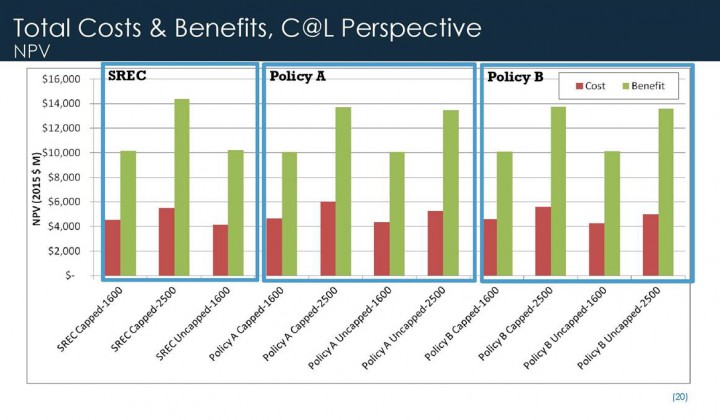Utilities and AIM ignore solar benefits and exaggerate costs in Globe Op-Ed

It's easy to make solar look bad when you ignore the facts. An Op-Ed authored by representatives of National Grid, Eversource and the Associated Industries of Massachusetts in the Boston Globe today tries to do just that. The utility and industry authors exaggerate the costs of solar, completely ignore the benefits and call net metering a subsidy. At the same time, they cite a growing waiting list of stalled solar projects in the National Grid net metering queue as proof that we don't need to raise the caps to keep solar working for Massachusetts. What?
The $4 billion cost claim cited in the Op-Ed is not an estimate put forth by the Net Metering and Solar Task Force (Task Force). Rather, the figure is an overinflated utility cost estimate designed to shock ratepayers and discourage elected officials from acting to raise net metering caps. What the TF did find, however, is that while the SREC programs are expected to cost non-participating (i.e. non-solar ratepayers) $2.7-$2.9 billion over 25 years, those programs are also expected to provide $7.0-$8.8 billion in benefits to the citizens of Massachusetts over the same period. In other words, the benefits of solar are worth more than twice the costs.
A report released last week by Environment Massachusetts shows that utilities and anti-solar interests continue to vastly undervalue solar. See a blog post about that report here. Download a factsheet drafted by Joel Wool at Clean Water Action that details how solar provides a net benefit to ratepayers here. Utility claims that net metering is a subsidy may be true but not in the way that utilities claim. Rather, solar provides benefits to the grid that far outweigh the costs such that, in many states, solar owners are actually subsidizing utility operations and non-solar ratepayers instead of the other way around. For a great discussion of net metering as a subsidy for utilities, check out John Farrell's recent article in Clean Technica.
Finally, the notion that a growing waiting list of solar projects is evidence of a healthy solar market ignores reality. Job losses and layoffs are increasing across the solar sector in Massachusetts as net metering caps stall solar projects across half the state. Those projects in the net metering queue are waiting for the legislature to raise caps so they can move forward. If the legislature fails to act, these projects will be cancelled and more jobs will be lost along with the opportunity for Massachusetts to continue capitalizing on solar as a way to build healthier, more resilient communities.


